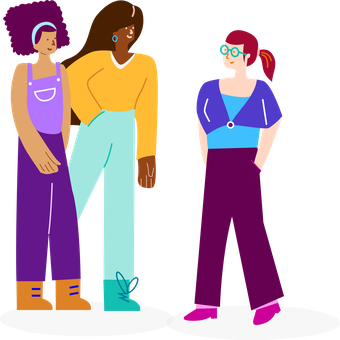Every year, a “16 days of activism” campaign against gender-based violence begins on 25th November and ends on International Human Rights Day: 10th December.
Gender-based violence is widespread and remains largely unreported due to the stigma surrounding it. Those who experience gender-based violence, face severe psychological, sexual and reproductive health consequences. While it can happen to anyone, women from marginalised groups, such as LGBTIQ+ women, ethnically marginalised women, migrants and refugees and disabled women are particularly vulnerable.
It is of course a crucial issue for the homelessness sector.
Domestic abuse is a primary trigger of homelessness amongst women, particularly when combined with financial insecurity . Among women who have slept rough, experiences of violence are near universal. It is therefore common for the homelessness sector to support survivors of domestic abuse and gender-based violence, and there have been many examples of specialist projects including the respite rooms pilot and services funded by the ending women’s homelessness fund.
Unfortunately, survivors of domestic abuse are often given sole responsibility for managing their own safety, when perpetrators should also be held accountable for their actions. Women living in ‘Your Place Newham’, a supported accommodation project, explained there are often expectations on survivors to leave their abusive relationships, which can be complicated by the dynamics of exploitation and their ‘feelings of love and care for abusive partner’. The women valued support that listened to them and respected their wishes.
Trauma experienced by women affected by gender-based violence has a long-lasting impact, and shame that may be experienced can be unintentionally embedded by services that do not fully understand the dynamic of domestic abuse. Resources that can be used by services to develop understanding and support include:
- Our training around ‘Domestic Abuse and Homelessness’ which is packed with useful ideas around the dynamics of domestic abusive and how to provide effective support to people experiencing domestic abuse in the sector.
- DAHA’s accreditation framework for homelessness settings and new guidance about working with perpetrators, launched at an event on 28th November.
- Explore these resources around supporting women experiencing homelessness and keep an eye out for further information.
What else you can do?
Familiarising yourself with the issue of violence against women, including but not limited to domestic abuse, is the beginning.
Use the 16 days of action to promote awareness of violence against women in your service.
Take action by reviewing your policies and making sure all staff are confident and capable of handling difficult cases.
Celebrate what has gone well, but also look for where things can be even better.
Supporting staff affected by Domestic Abuse
Homeless Link are members of the Employers Initiative of Domestic Abuse (EIDA), a network of employers that take effective action against domestic abuse, Homeless Link ran a workshop for our staff which covered what domestic abuse is, spotting the signs and how to help and support employees. If you would like to find out more about EIDA or are interested in becoming a member, visit their website here.

